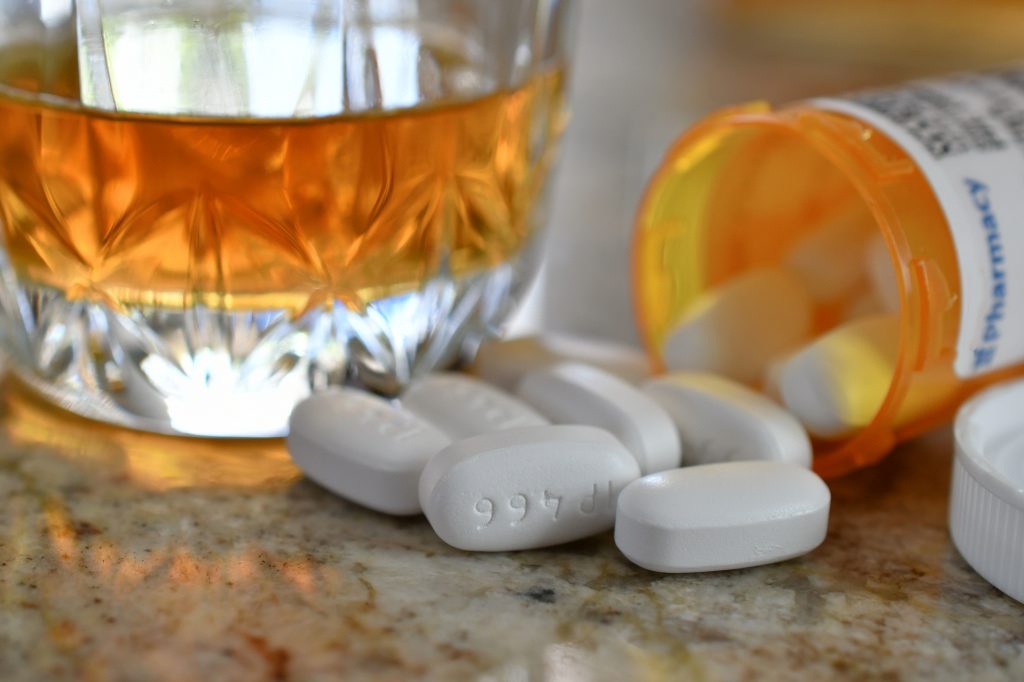Suboxone is one of the most popular prescription drugs used to effectively suppress the desire for opioids and alleviate withdrawal symptoms. Although the drug has assisted a significant number of individuals struggling with opioid overuse disorder, the drug isn’t 100% risk-free.
While some experts have expressed concern over its long-term risk of developing dependency, there is also an immediate risk of mixing it with other drug substances.
According to the Substance Abuse and Mental Health Services Association, there are approximately 30,000 suboxone-related emergency room visits every year. At least 50% of these hospitalizations involved mixing Suboxone and alcohol.
With the country struggling to manage the opioid epidemic, Suboxone’s popularity continues to increase, making it crucial to educate the public on the dangers of mixing it with other drug substances.
This post discusses everything you need to know about mixing Suboxone and alcohol, highlighting some of the dangers involved. So, let us jump straight in.
Understanding How Suboxone Works
Suboxone is a combination of two drugs, namely buprenorphine and naloxone. The two drugs work by satiating the brain’s craving for opioids without accelerating the withdrawal symptoms.
Suboxone works as a partial opioid agonist (weak opioid) and locks itself onto the brain’s opioid receptors. This mechanism helps alleviate withdrawal symptoms, lower cravings, and prevent other potent opioids from interacting with opioid receptors in the brain.

Basically, the treatment is designed to “trick” the brain into believing that a full opioid dose has been taken. This helps to eliminate the pleasurable effects that typical opioids offer.
Since Suboxone has an opioid, albeit weakened, taking other drug substances while on Suboxone treatment can be life-threatening. Therefore, if you are on this treatment regimen, it is always good to avoid taking other drugs, including alcohol.
Suboxone and Alcohol
Whether you are taking prescription Suboxone or abusing it, you need to familiarize yourself with drugs that are most likely to have an adverse reaction with it.
Typically, any drug that affects your breathing system can be quite dangerous. These types of drugs shouldn’t be taken in any amount with Suboxone without discussing everything with your doctor.
In fact, almost all opioid addiction treatment centers discourage the use of alcohol while on Suboxone. Individuals addicted to a particular drug substance are usually at risk of replacing the original substance of abuse with another one when there is withdrawal. However, the danger is beyond mere replacement when it comes to Suboxone.
In fact, of all the drug substances that are dangerous to use with Suboxone, alcohol is the most harmful. Unfortunately, it is the most likely to be abused by patients on Suboxone treatment accidentally or otherwise.
Combining Suboxone and alcohol can significantly affect your breathing rate leading to an increased risk of suffering a cardiac arrest.
What Does Alcohol Do to Your Body?
Most of us already know that drinking a lot of alcohol can cause severe damage to body organs such as the liver.
Furthermore, alcohol interferes with how your brain operates, causing changes in your behavior and mood. It can also limit your ability to reason and move with proper coordination.

Several studies have linked it to a wide range of heart-related problems, including stroke, irregular heartbeat, and high blood pressure. Heavy drinkers place their pancreas and liver at risk for inflammation and degradation that is irreversible.
The list of harm that alcohol causes to your body is pretty long and ranges from detrimental to fatal. Having said that, it is safe to emphasize that mixing Suboxone and alcohol can be pretty dangerous.
What Are the Risks of Combining Suboxone and Alcohol?
When combined, Suboxone and alcohol can accelerate the side effects of each substance on your respiratory system. However, that is only the beginning because things can accelerate and run out of control pretty fast.
Typically, alcohol abuse can lead to the following issues:
- Seizures
- Poor judgment.
- Confusion
- Lack of coordination.
- Irregular breathing.
- Vomiting
Meanwhile, Suboxone abuse may result in the following side effects if abused:
- Dizziness and severe headache.
- Trouble concentrating or feeling drunk.
- Pain, numbness, and redness around your mouth.
- Sleep problems (both insomnia and drowsiness).
- Constipation and severe stomach problems.
- Numbness in the extremities.
So, what happens if you mix Suboxone and alcohol? The most significant risk of combining Suboxone and alcohol is that it can lead to a relatively high chance of respiratory and central nervous system depression. The other side effects of mixing the two include:
- Extreme drowsiness.
- Prolonged coma (some people fail to come out of the coma successfully).
- Impaired or slurred speech.
- Potentially fatal breathing problems.
- Loss of consciousness.
- Motor control problems.
When Is It Safe to Mix Drugs?
The simple answer is that there is no time when it is safe to mix drugs. Consequently, it will never be safe to mix Suboxone and alcohol.
If you are abusing any of these substances, it is clear that you need urgent treatment, especially if you were using Suboxone to treat opioid overuse disorder. If you have been combining these substances behind your doctor’s back, then it is time to take action and reassess your treatment program.
If you ever find yourself mixing these two substances involuntarily, monitor your breathing carefully and control your alcohol intake. Remember that it takes some time before the alcohol is fully absorbed into your bloodstream, which makes it easy to consume much more than what you intended.

If you notice that your breathing is slowing, stop drinking and seek medical attention immediately. Slow breathing is a clear sign that you are in real danger, and you need to act quickly.
Avoid using Suboxone with other opioids completely because it will only counter the entire purpose of the treatment plan. Furthermore, the naloxone in Suboxone may lead to severe withdrawal symptoms.
Treating Suboxone and Alcohol
If you ever mix Suboxone with alcohol, the first thing you need to do is call 911. Don’t call your substance treatment center because they may not be able to send emergency services to your location promptly.
Once you have been attended to and regained stability, be sure to talk to your Suboxone doctor about it. Sometimes, you may take alcohol involuntary due to a pre-existing addiction. Your doctor will work with you to ensure you withdraw from alcohol use and focus on your Suboxone treatment.
You may be required to undergo dual diagnosis care to help you overcome both addictions. Keep in mind that trying to overcome the abuse by yourself will only derail your chances of success.
Pursue a Safe and Sustainable Recovery with CCIWA
The key to safe and sustainable recovery from opioid overuse disorder is deciding to treat your body and mind better and committing to the plan.
You must adhere to your doctor’s recommendations and embrace the psychosocial support and therapy offered as part of the treatment plan. These two are critical to your long-term success.
At CCIWA, we understand the challenge of overcoming opioid addiction, and we are here to help you from the start to the end. Our experienced Suboxone doctors will assess your condition and create a personalized treatment plan that suits your individual needs.
Contact us today to learn more about our treatment options and how we can help you regain control of your life!



